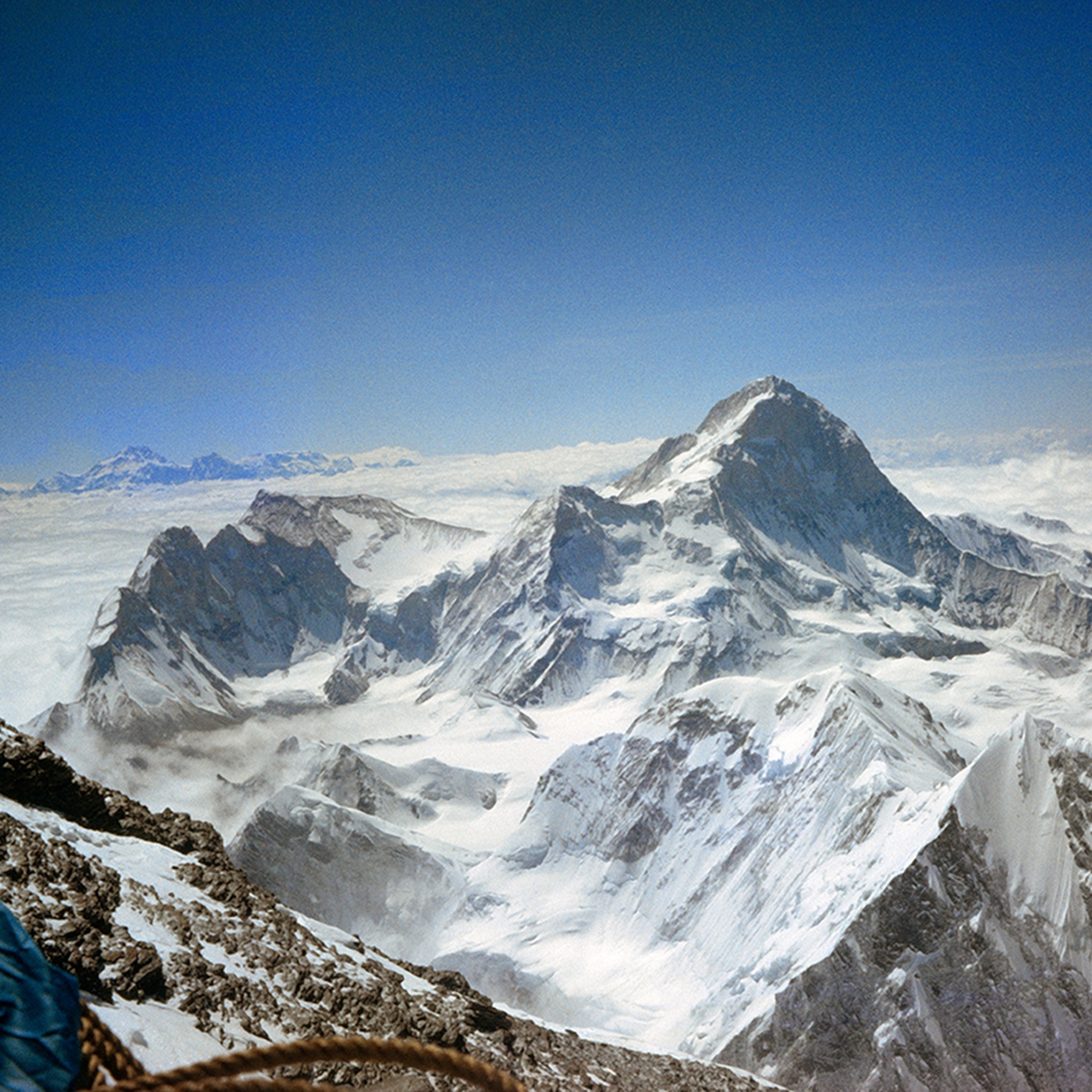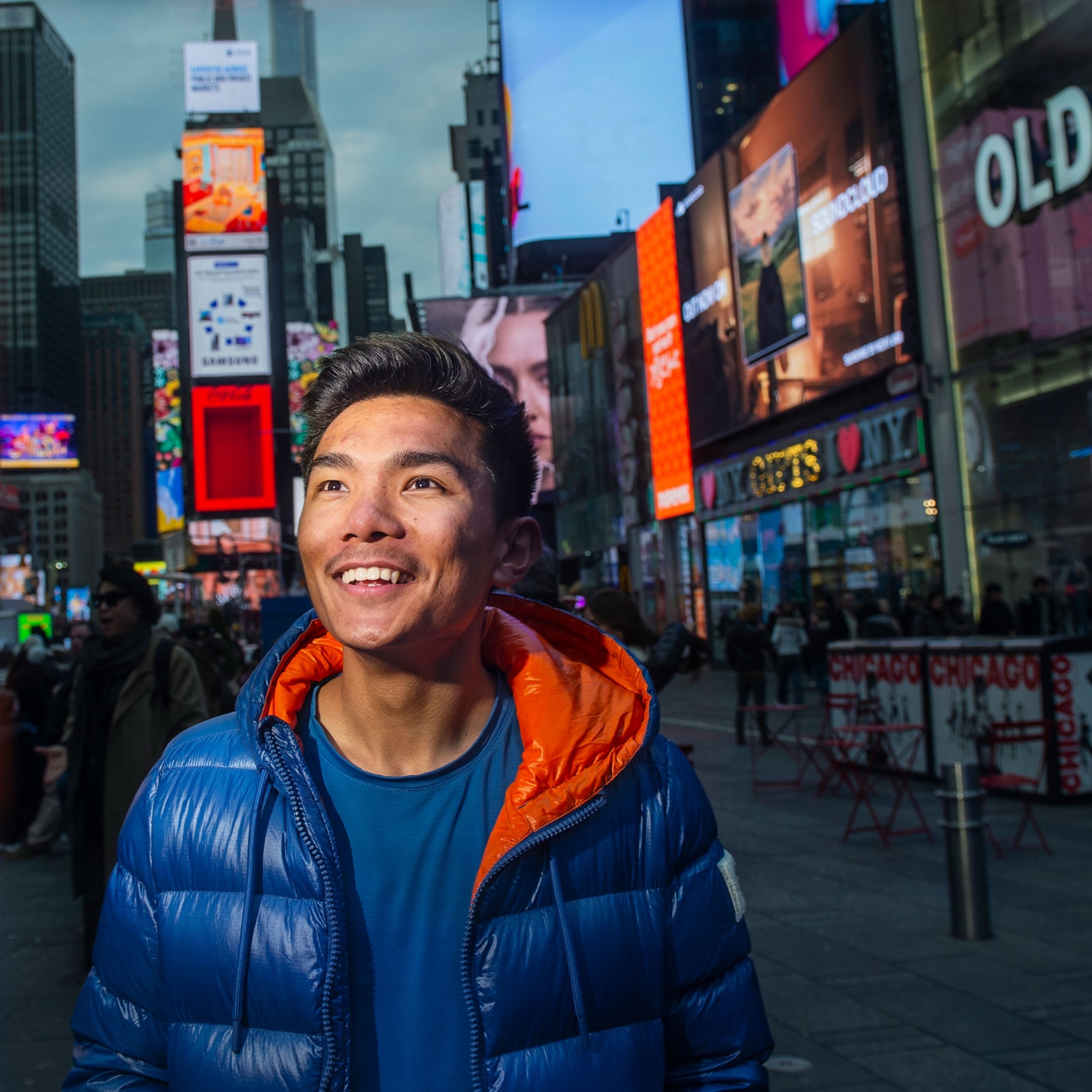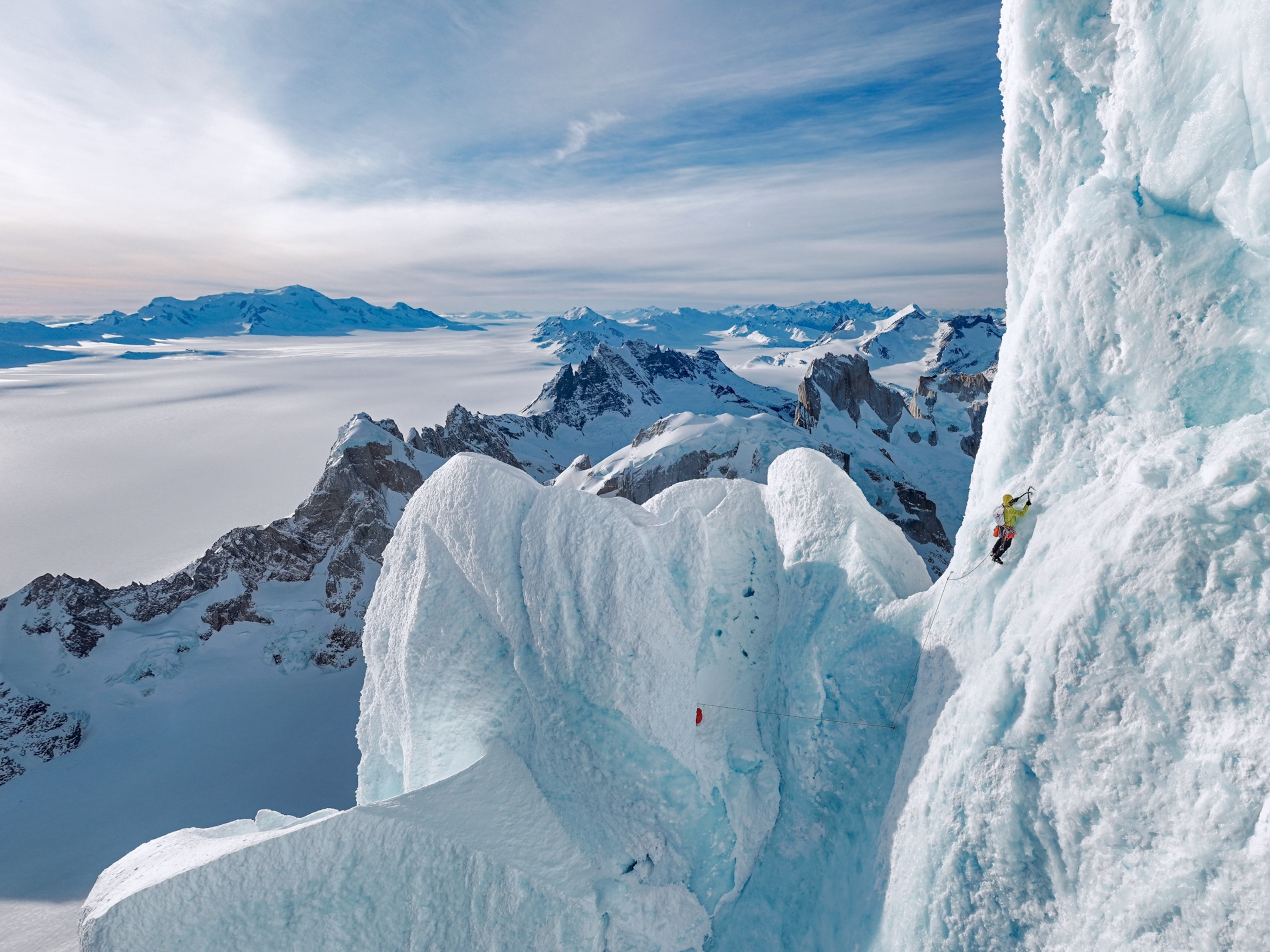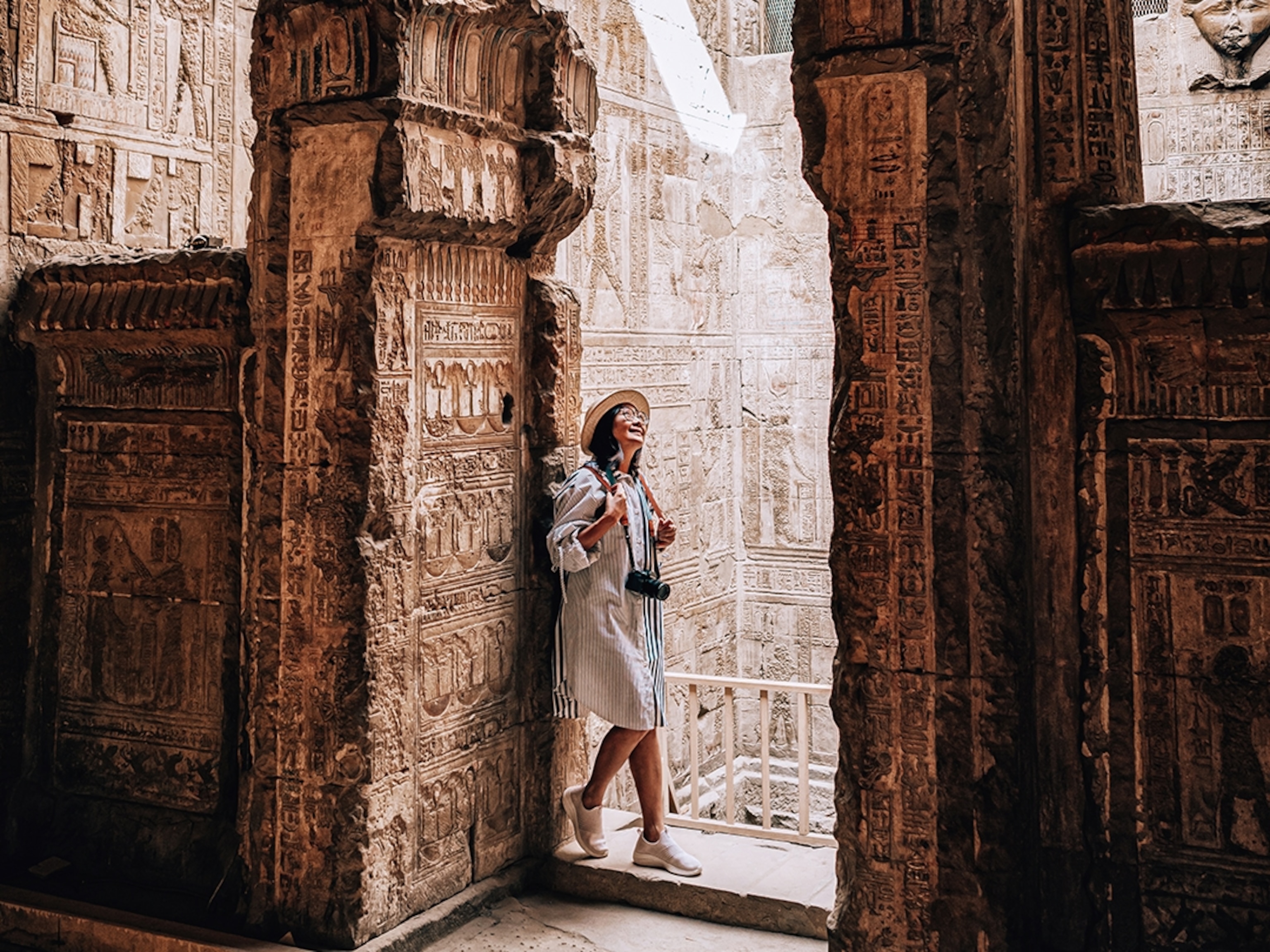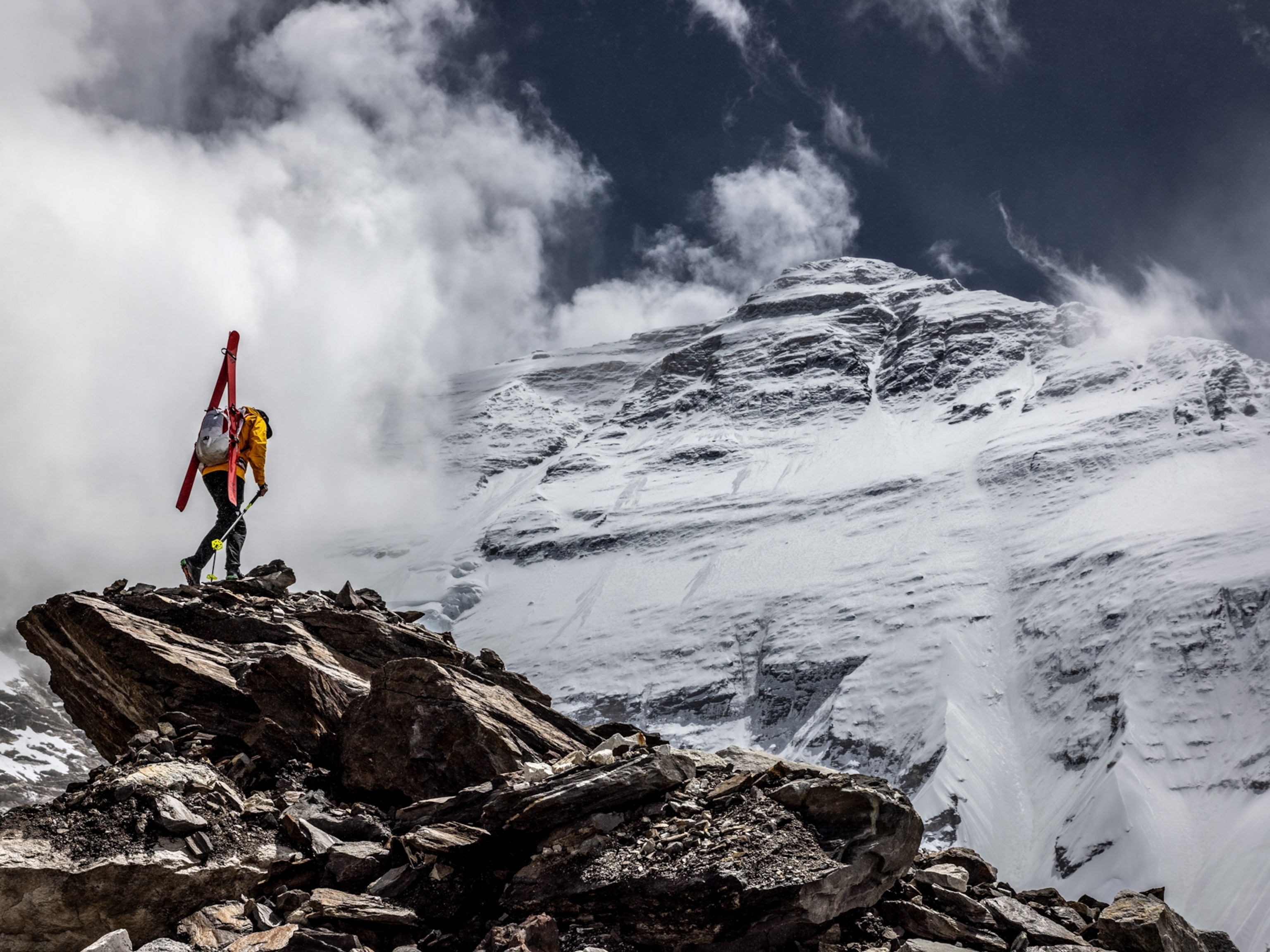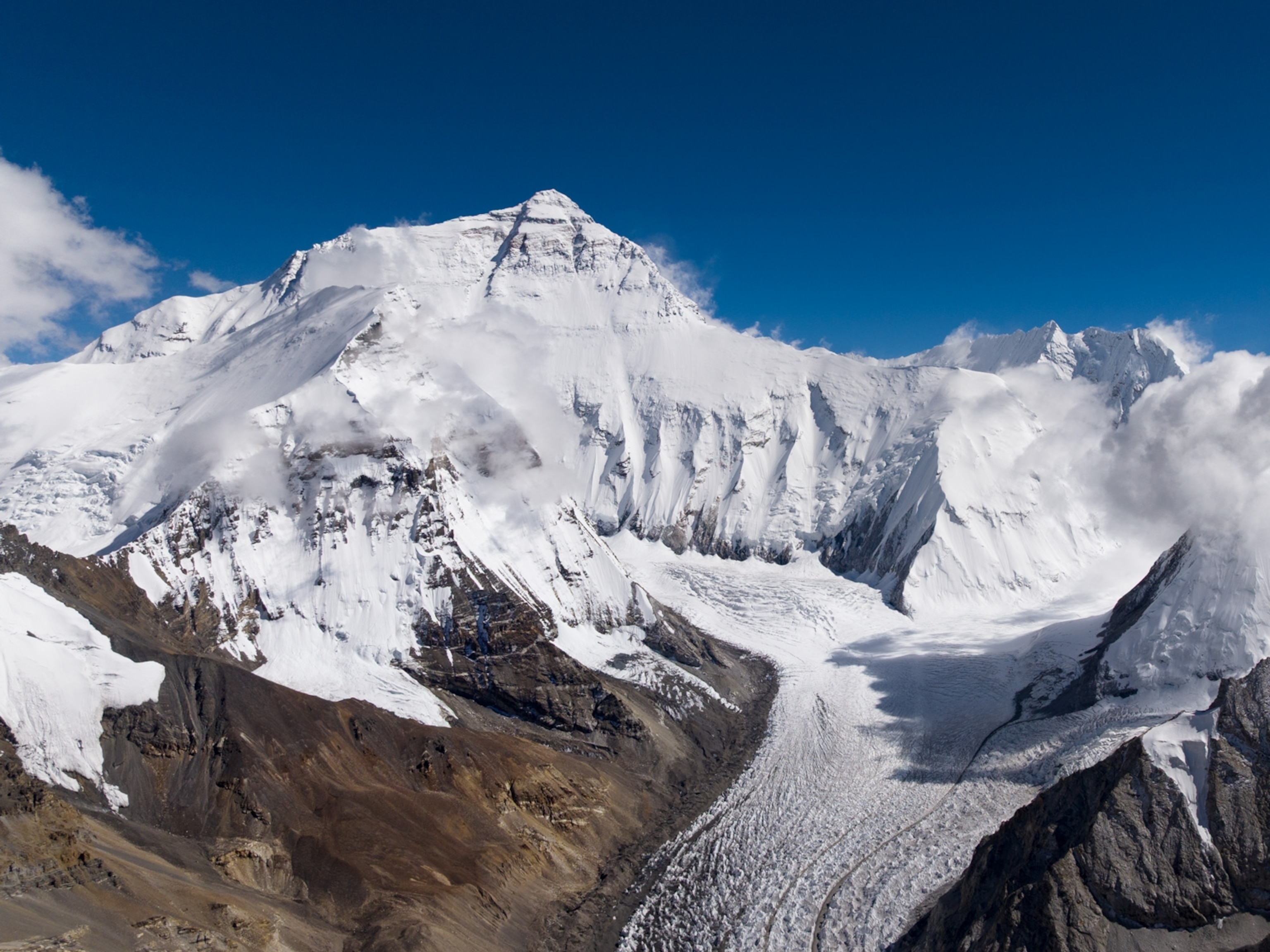
This woman climbs mountains to empower girls around the globe
Sara Safari shares the real reason she climbs, what she's learned from her failures, and how she tackles sexism on the mountain.
Sara Safari had never climbed a mountain when she decided to climb Mount Everest. For her first foray into the mountain climbing world, she attempted to reach the top of California's Mount Whitney. Nothing went as planned, and she didn’t reach the summit, but she made it through the night all on her own. She was hooked, but she knew she had a lot of work to do.
While she was training for her goal, she connected with Empower Nepali Girls, an organization that works to provide scholarships and educational opportunities to disadvantaged girls and young women in Nepal. She was inspired to match her new mountain adventures with the needs of these girls and began using her climbs to shine a light on the group’s work.
We talked to Safari about her latest efforts to climb the seven summits, her support of Empower Nepali Girls and other female-focused organizations, and the true lessons of mountain climbing.
What inspired you to start mountain climbing?
I wanted to challenge myself to do something out of my comfort zone to prove to myself that, as a woman who has no experience in mountain climbing, I’m capable of anything. I grew up in Iran, and I experienced first-hand gender discrimination, so I wanted to prove to myself and other women that we can do anything men do.
But the personal challenge was not enough for me to continue risking my life. When I started climbing for a cause, my motivation tripled. It was not about me anymore. It was about all those young girls and their future.
Have you ever felt excluded or marginalized from the climbing world because of your gender? How did you respond?
Sometimes! Mostly I have met supportive people in my journey, but there are still some men outdoors with patriarchal views—and they make sure to express them as often as they can. For example, on Cho-Oyu I met a guy who wondered why I was climbing instead of shopping in malls. He also wondered how my family allowed me to do this.
Why is he thinking that I need permission to climb a mountain, but he doesn’t?Sara Safari
I usually just smile and stop the conversation, because all my childhood, I’ve been told to be a good girl and not fight or argue. When he asked me that question, I thought “Why is he thinking that I need permission to climb a mountain but he doesn’t?” But I didn’t want to create a scene right at the beginning of the expedition. Thanks to the #metoo movement, in the past couple of years, instead of just smiling, I talk about the elephant in the room.

How did you get connected with Empower Nepali Girls?
I met the founder, Jeffrey Kottler, at California State University, Fullerton, where I was teaching electrical engineering and computer science. He was teaching psychology. He told me about the foundation and I fell in love with it, so I decided to raise one dollar per foot of any mountain that I climb to provide education for the girls.
Tell us about the organization and its goals.
Our mission is to empower and support neglected, marginalized, and at-risk girls and young women in Nepal, especially those who are at greatest risk to be forced into early marriage, sold into sex slavery, or abandoned as orphans. We provide scholarships, mentoring, career guidance, and subsistence for children who would not [otherwise] have the opportunity to attend school and pursue future careers in medicine, engineering, business, teaching, and other professions.
Have any of the girls from the group learned to climb or taken on adventures of their own?
A couple of years ago, a group of our college girls (I say our girls because I feel like they are all my daughters) took on a female-only hiking trip to some remote regions in Nepal which made me extremely proud. Also, one of our college girls started professional martial arts, and she has been tremendously successful.
What has mountain climbing taught you beyond the skills required to get to the summit?
I have learned it’s not about summit or success and glory. It is about learning how to deal with fears and failures—making friends with them and welcoming them as a part of the summit plan. It is about showing yourself and other people that anything is possible with enough courage and commitment.
I love and enjoy traveling to some of these remote places, meeting the locals, and learning about their cultures. I have learned we, as human beings, are all the same—and unique at the same time. We need to celebrate this rather than fight over it. I have met some of the most powerful and resilient women around the world, and they are my inspiration every day.
It is about learning how to deal with fears and failures—making friends with them and welcoming them as a part of the summit plan.Sara Safari
You've long connected advocacy work with your climbing. What's in store next?
I just came back from crossing Greenland to raise funds for Planned Parenthood. I’m also working on the seven summits (climbing the seven highest peaks on all seven continents) for seven organizations who are empowering women. I would be the first Iranian woman to climb all seven. I have already climbed five of them and I have two more to go.
We are also working on a feature film based on my book with a group of amazing people. And my new book is coming out soon.
- National Geographic Expeditions
What advice do you have for girls looking to pursue their passions?
It’s not about the top of the mountain. It’s about the journey and what opens up for you along the way. I never knew I liked mountain climbing until I tried it. So, try things out of your comfort zone, even if you don’t like them. If your life is too easy, you are not living a very big life. Give yourself time and permission to keep trying and exploring. Look at your failures as a part of the ultimate process.
Climbing external mountains taught me to climb my inner mountains first. I learned how to overcome my fears, how to step outside my comfort zone, how to appreciate everything. Mountains taught me to be patient, humble, and accept my failures and learn from them.
I had to climb many internal Everests to be able to stand on the real one. Facing challenges, taking risks, tackling the things that frighten me the most—these are precisely the things that have most empowered me, as well as inspiring our scholarship girls to follow in my footsteps. These girls are attempting something that is absolutely unprecedented, to become the first ones in their villages to attain an education and pursue a professional career. They will become engineers, doctors, mountaineers, or teachers. They will demonstrate to their families and communities that they are indeed among their country’s greatest resources, and they will someday transform their nation.

